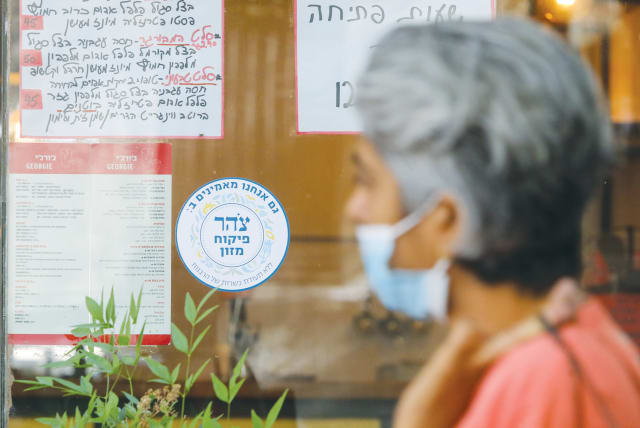High Court overturns Chief Rabbinate ban on Tzohar kashrut for imports

Some two years ago, the Chief Rabbinate's imports committee denied an initial Tzohar request to allow its certification to apply for imported goods.
The High Court of Justice overturned on Wednesday the Chief Rabbinate of Israel's ruling against rabbinical organization Tzohar which prevented it from certifying the kashrut of food products imported to Israel from abroad.
Roughly two years ago, the Chief Rabbinate's imports committee denied an initial Tzohar request to allow its certification to apply for imported goods. After the organization filed a petition to the High Court appealing the rabbinate's ruling, the latter agreed to rescind its initial rejection of Tzohar's kashrut certification following court criticism.
"We are delighted by the court's ruling and are looking forward to working together for the betterment of Israeli kashrut certification," attorney Asaf Benmelech, who represented Tzohar, said following the High Court's ruling.
'Illegal activity' within Tzohar's kashrut certification system?
In the discussion held at the High Court in Jerusalem, the Chief Rabbinate argued that it had initially rejected Tzohar's request due to "illegal activity" within Tzohar's kashrut certification system, along with "failures in the kashrut system's functioning."
The Rabbinate rescinded its initial ruling from two years ago, claiming that it had refrained from holding the administrative procedure required due to discussions at the High Court and lamented that it had not been given an official response by Tzohar for the accusations the Rabbinate had leveled against it.
The court ruled that the Rabbinate must hold a full and proper procedure to examine the eligibility of Tzohar's kosher supervision, also ordering the Rabbinate to pay Tzohar for the costs of the legal proceedings.
High Court ruling could challenge Chief Rabbinate's monopoly over kashrut supervision
The High Court's ruling appears to challenge the Chief Rabbinate's monopoly over kashrut supervision in Israel.
In 1993, the High Court ruled that according to the Basic Law: Freedom of Occupation, a company called Meatrael should be allowed to import non-kosher meat. The court ruled that “limitations on the freedom of occupation may only be considered for a proper purpose and on the grounds of the common good.”
Shas, as part of then-prime minister Yitzhak Rabin’s Labor-led coalition, passed an amendment to the basic law, and then in 1994 passed the Meat and Its Products Law that slapped a prohibition on the import of non-kosher frozen meat. Ever since, the High Court has refrained from interfering, despite being petitioned.
The Chief Rabbinate privatized the certification of imported goods' kashrut several years ago, allowing for private ultra-Orthodox (haredi) bodies to certify kashrut for foreign food makers. As of June 2023, any food product imported to Israel must receive a stamp of approval from the Chief Rabbinate before it can be called kosher, including products already deemed to be kosher by Diaspora rabbis.
Jerusalem Post Store
`; document.getElementById("linkPremium").innerHTML = cont; var divWithLink = document.getElementById("premium-link"); if (divWithLink !== null && divWithLink !== 'undefined') { divWithLink.style.border = "solid 1px #cb0f3e"; divWithLink.style.textAlign = "center"; divWithLink.style.marginBottom = "15px"; divWithLink.style.marginTop = "15px"; divWithLink.style.width = "100%"; divWithLink.style.backgroundColor = "#122952"; divWithLink.style.color = "#ffffff"; divWithLink.style.lineHeight = "1.5"; } } (function (v, i) { });

